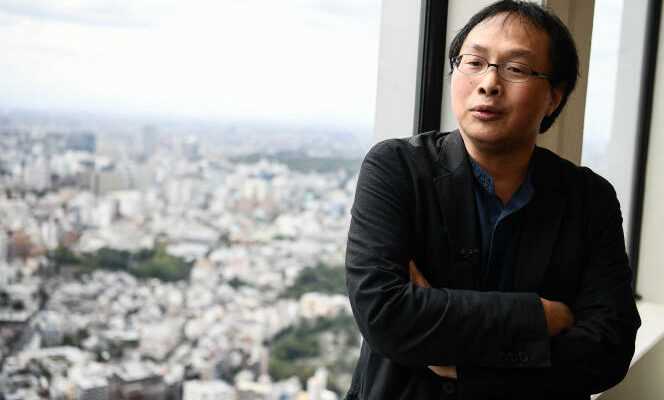Discovered in France in 2014 with goodbye summer, the cinema of the Japanese Koji Fukada knows how to be unpredictable by describing all kinds of swerves. The latest plunges us into a diptych Follow me I run away from you/Follow me I follow you two times two hours: a strange and bouncy love story that implicitly underlines the evils of contemporary Japan.
What process led to this two-part film?
The first trigger was my discovery of the original manga, The Mark of Truth (Honki no Shirushi, 2000-2003) by Mochiru Hoshisato, when I was a film student. Fifteen years later, my producer on Harmonium (2016), to whom I had spoken about it, came back to me, and we presented the project to a local television channel, Nagoya TV. The serial format seemed to me to be suitable for adaptation, a long-term story that is difficult to fit into a feature film without making many cuts, and therefore blowing up a lot of details of the story. The feedback following the broadcast of the series has been extremely positive. I thought that exploiting this material for the cinema would make it possible to exceed its purely local audience.
What are the differences between the two versions?
The broadcast series had ten episodes of twenty-three minutes each. I started by putting everything together by deleting the credits and the ad breaks, to see if it would be usable as such. But the rhythm no longer stuck, and the whole, reduced to a single block, gave something very monotonous. We had to deconstruct all the dramaturgy to make it a real film. The other point that had to be changed a lot is the sound. For television, we had “pushed” the dialogues, so that the series could be seen everywhere, including on smartphones in a noisy environment. For the theatrical release, everything had to be remixed. And it was ultimately this work that took me the most time.
Like some of your previous films, this one plays on the motif of one person’s intrusion into another’s daily life. Is that what interested you?
By adapting this manga to the screen, I indeed realized that it was correlated to my previous films. What really interested me was the portrait of a woman that emerged from it. Ukiyo is first perceived there as a seducer, she renews the archetype of the “woman fatal”, a recurring motif, whether in literature or in cinema. But in my opinion, she is only considered that way because she evolves in a masculinist, patriarchal society. I found this questioning of the concept of the femme fatale rather subversive, moreover in a comic book magazine of the time, devoted to a readership of male teenagers. For the adaptation, I reread the manga from this angle, with all the current debates on gender issues in the background.
You have 36.89% of this article left to read. The following is for subscribers only.
